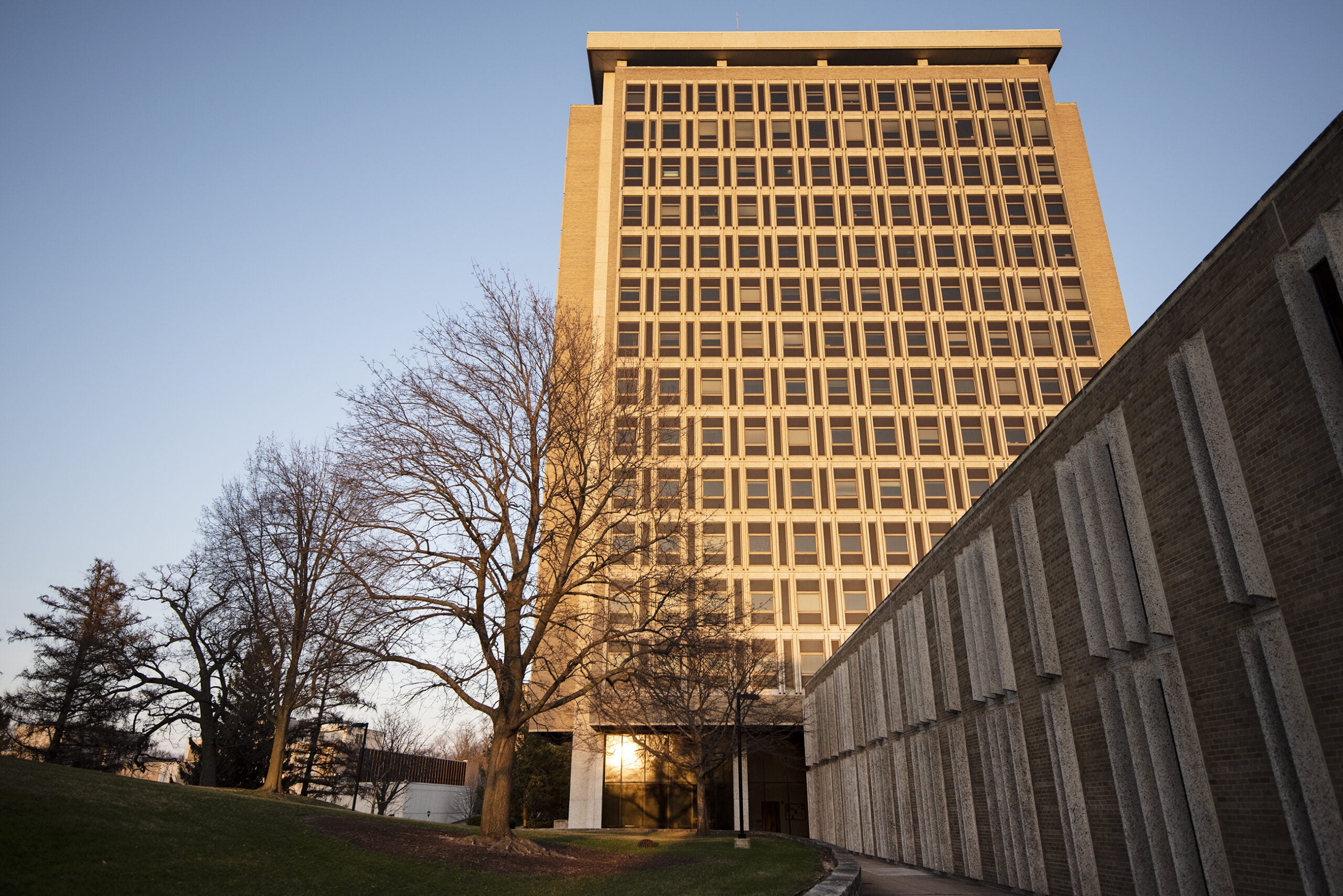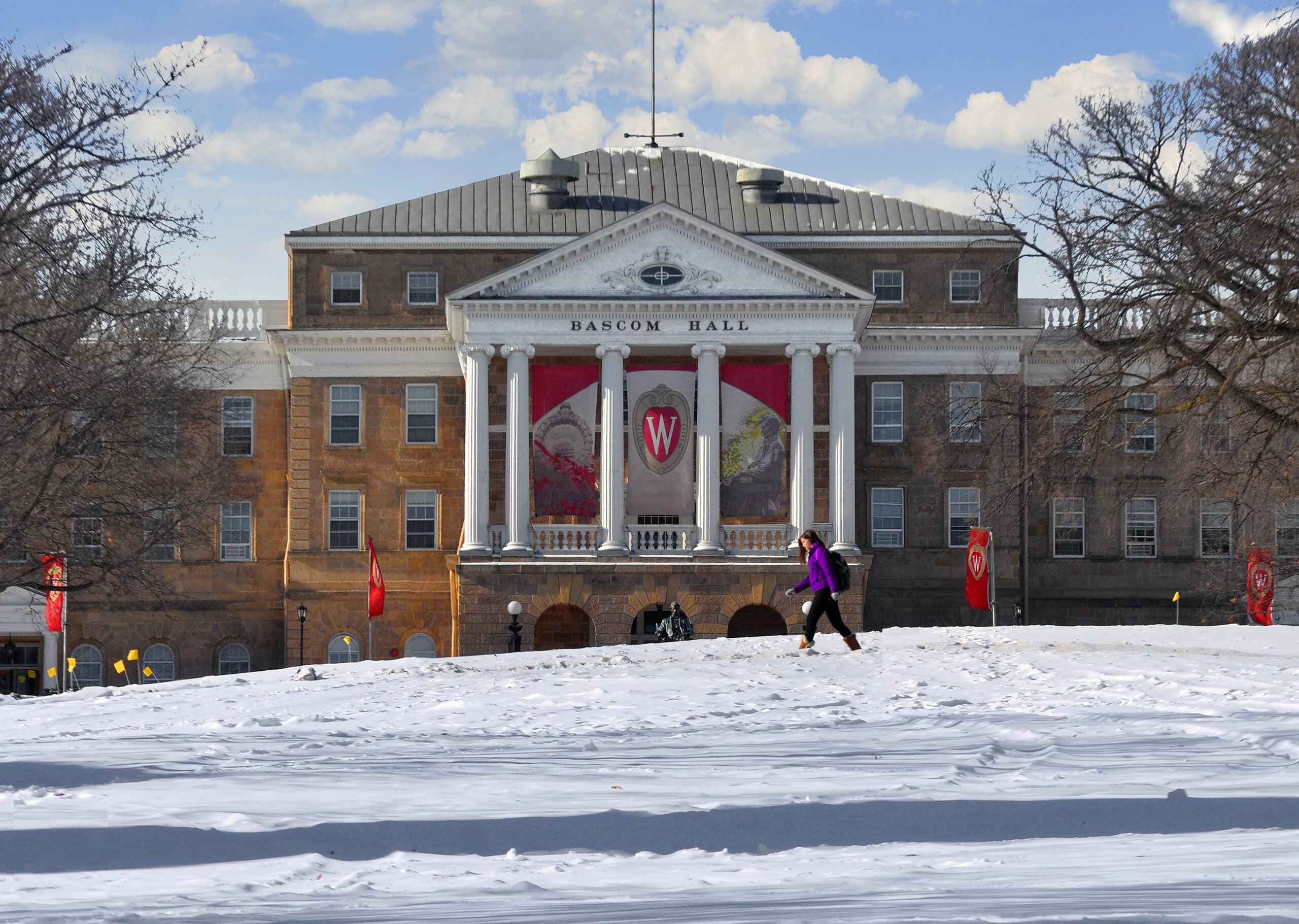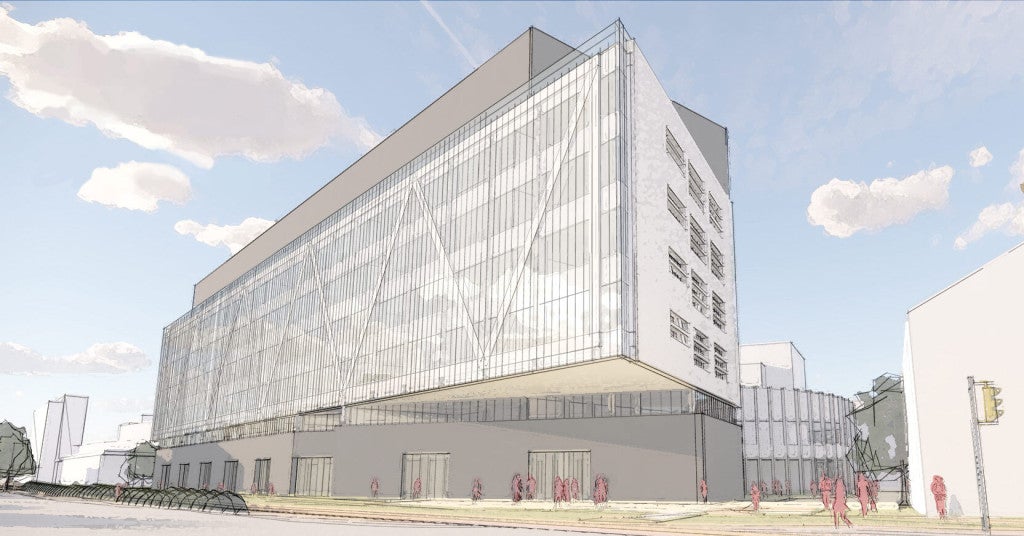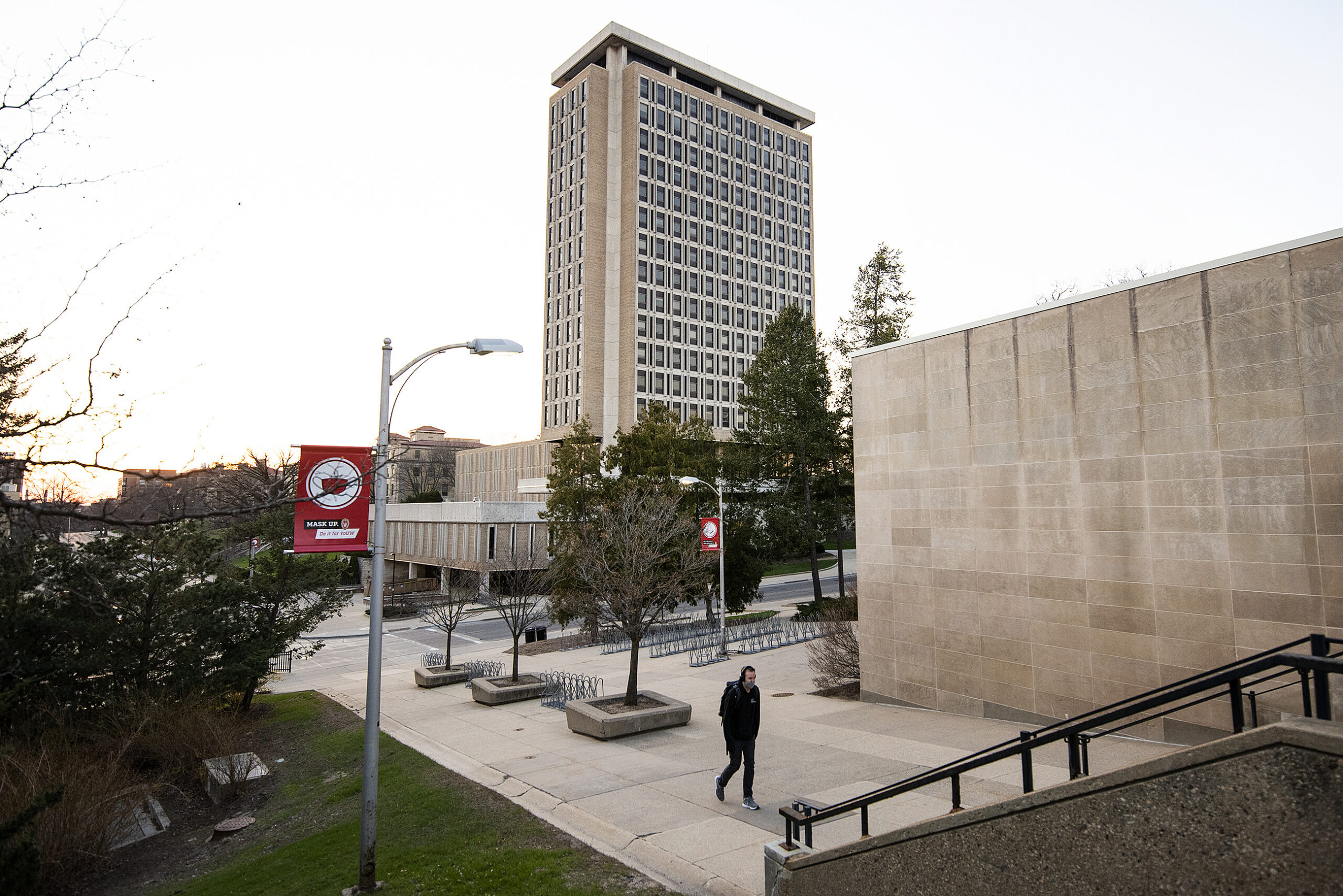The Universities of Wisconsin announced a plan to use $32 million in supplemental funding from the state budget to expand training in engineering, nursing and computer science.
UW System President Jay Rothman told reporters Monday that doing so would position Wisconsin to compete in a global economy.
But securing the funding won’t be easy. Assembly Speaker Robin Vos has repeatedly said Republicans will withhold the $32 million from university system unless it ends its diversity, equity and inclusion programming.
Stay informed on the latest news
Sign up for WPR’s email newsletter.
On Monday, Rothman stood firm on the importance of DEI.
“We need to be an inclusive and welcoming environment,” Rothman said. “Whether that be for underrepresented groups, whether that be for veterans, disabled students, first generation students, students of different religious faiths, students of different political ideologies. That’s what we are focused on.”
When asked if he believes Republicans will release the $32 million, Rothman said the investment in workforce funding is beneficial to Wisconsin and something everyone can get behind.
Vos did not immediately respond for comment.
Plan calls for money going to each campus
The UW System plan calls for UW-Madison and UW-Milwaukee to receive approximately $2.5 million each and the remaining 11 universities to receive approximately $1 million each.
If approved, each university would be able to use the funding to bolster its programs for engineering, nursing and health care, business and finance, and computer and data science. Rothman said the money could add more than 9,300 graduates in those four areas.
Rothman announced the proposal ahead of Thursdays Board of Regents meeting.
“This plan is exactly what the Legislature is looking for — a concentrated emphasis on adding more graduates to the workforce in key areas,” Rothman said. “We are Wisconsin’s greatest talent magnet and talent generator, and this funding will add to our existing role in helping Wisconsin win the war for talent.”
After the proposal is presented to the Regents on Thursday, Rothman will deliver it to the Republican-led Joint Committee on Finance for approval.
Joint Finance Committee co-chairs Rep. Mark Born, R-Beaver Dam, and Sen. Howard Marklein, R-Spring Green, did not immediately respond to requests for comment.
Evers’ 2023-25 biennial budget included $31.89 million in general purpose revenue for release to the UW universities upon request.
The proposal must meet outcomes-based funding guidelines developed during the 2017 budgeting process. Those guidelines call for programs that grow and ensure student success, enhance operational efficiency and effectiveness, improve student progress and completion, and expand contributions to the workforce.
Currently, UW universities in total graduate about 15,000 graduates in STEM and health care fields every year. Those degrees make up about 40 percent of the degrees awarded by the Universities of Wisconsin overall, a 30 percent increase over the past 10 years.
“I’m proud of the critical role our universities play in shaping Wisconsin’s workforce of the future,” Rothman said. “The Universities of Wisconsin have the capacity to add thousands of graduates to the workforce in critical areas, and I know we’ll be responsible stewards of this funding when it is released by the Legislature.”
Republicans’ refusal to fund the University of Wisconsin-Madison’s plans to expand its engineering program is not sitting well with the state’s business leaders. Over the weekend, 42 CEOs took out a full-page ad in the Milwaukee Journal Sentinel and the Wisconsin State Journal telling legislators the state needs more engineers.
The letter said they are disappointed that lawmakers did not fund the $374 million expansion of the engineering building at UW-Madison.
“As Wisconsin Employers, we are deeply disappointed by the decision of the Joint Finance Committee to not include the University of Wisconsin–Madison College of Engineering expansion in the 2023-25 capital budget,” the letter said. “These engineering graduates are vital to the state’s economic development needs, but we need more of them to meet the increasing demand from our companies.”
Wisconsin Public Radio, © Copyright 2025, Board of Regents of the University of Wisconsin System and Wisconsin Educational Communications Board.





